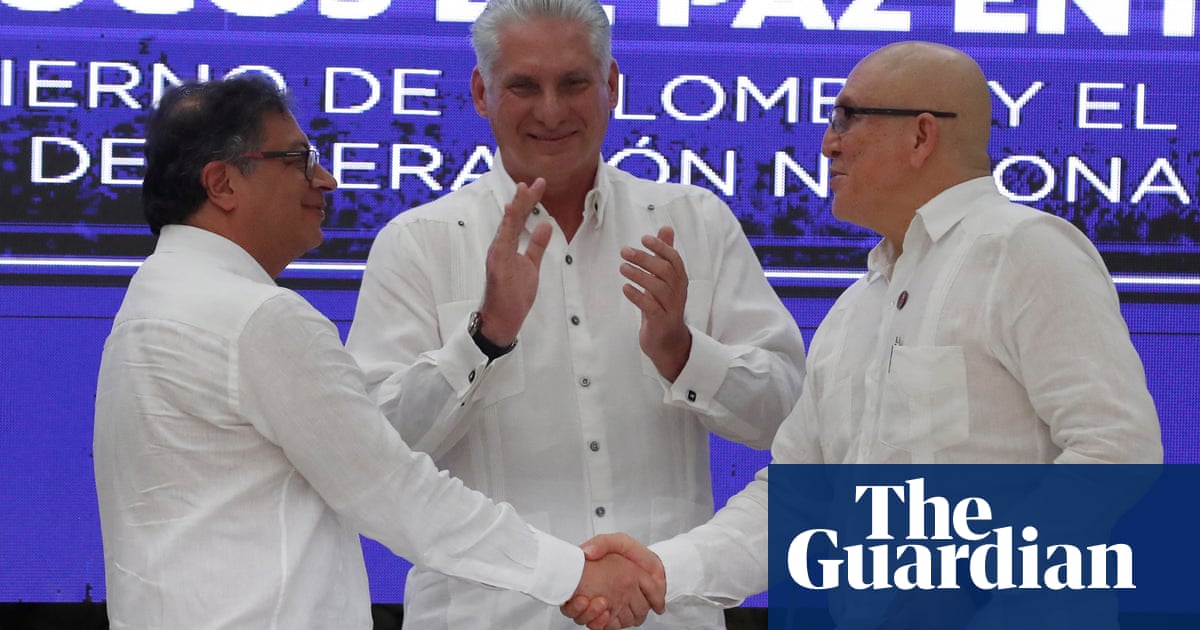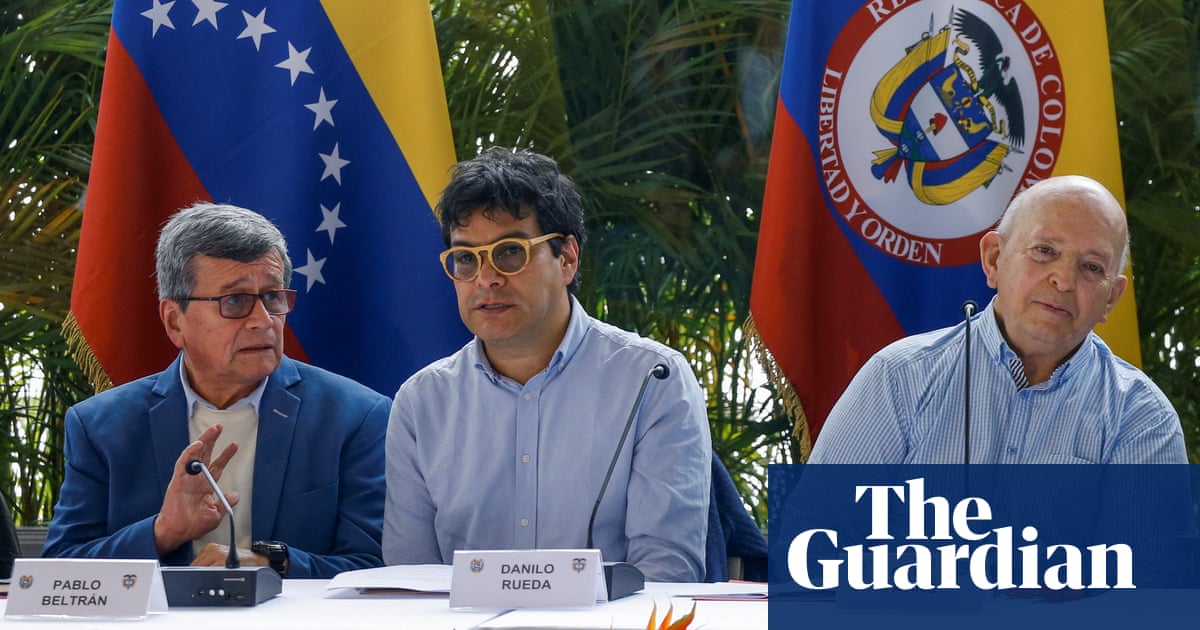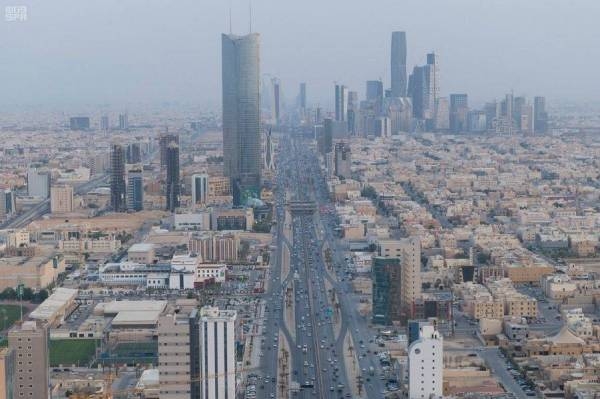
Colombia’s government and its largest remaining guerrilla group have agreed to a six-month ceasefire at talks in Cuba, in the latest attempt to resolve a conflict dating back to the 1960s.
The government and the National Liberation Army, or ELN, announced the accord at a ceremony in Havana on Friday attended by Colombia’s president, Gustavo Petro, top guerrilla commander Antonio García and Cuban officials. The ceasefire takes effect in phases, goes fully into effect in August and then lasts for six months.
“This effort to look for peace is a beacon of hope that conflicts can be resolved politically and diplomatically,” top rebel negotiator Pablo Beltrán said at the ceremony.
The talks originally were scheduled to conclude with an official ceremony on Thursday, but were postponed as the parties asked for additional time to work on final details. Petro traveled to the island for the ceremony, saying it could herald an “era of peace” in Colombia.
The accord reached Friday also calls for the formation of a broadly representative national committee by late July to discuss a lasting peace.
“You have here proposed a bilateral agreement, and I agree with that, but Colombian society has to be able to debate it, and to participate,” Petro said during the ceremony.
García, the rebel commander, said his group was “very confident” in the accord, though he characterised it as “procedural” and not yet the “substantial” kind needed “for Colombia to change”.
Negotiations between the sides had resumed in August after being terminated in 2019 when the rebels set off a car bomb at a police academy in Bogotá killing 21 people.
Following that incident, the government of President Iván Duque (2018-2022) issued arrest warrants for ELN leaders in Cuba for the peace negotiations. But Cuba refused to extradite them, arguing that doing so would compromise its status as a neutral nation in the conflict and break with diplomatic protocols.
Talks relaunched in November shortly after Petro was elected as Colombia’s first leftist president.
Petro has pushed for what he calls a “total peace” that would demobilise all of the country’s remaining rebel groups as well as its drug trafficking gangs. He has questioned whether senior ELN leaders have full control of a younger generation of commanders who he has suggested are focused more on the illegal drug trade than on political goals.
The ELN was founded in the 1960s by union leaders, students and priests inspired by the Cuban revolution. It is Colombia’s largest remaining rebel group and has been notoriously difficult for previous Colombian governments to negotiate with.
In 2016, Colombia’s government signed a peace deal with the larger Farc group that ended five decades of conflict in which an estimated 260,000 people were killed.
But violence has continued to affect rural pockets of the country where the ELN has been active, along with Farc holdout groups and drug trafficking gangs. Colombian authorities have accused the ELN of involvement in the drug trafficking, but the group’s top leaders have denied that.












